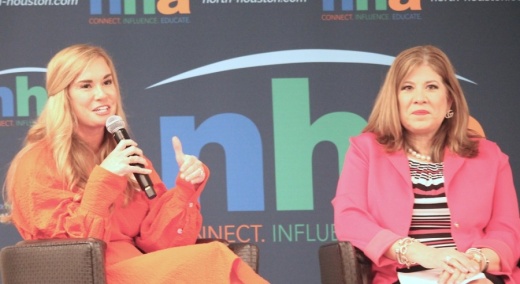The superintendents of Klein and Tomball ISDs met to discuss work programs, COVID-19 adaptations and hopes for the 2021 legislative session at an April 8 North Houston Association event.
Career education
KISD Superintendent Jenny McGown said her district is focusing not only on maintaining its current career and technical education programs, but also expanding to include a logistics program and a virtual academy for students who have thrived during remote learning.
“Certainly we believe in-person learning as the best option for most students, but there have been some students who have really thrived online,” McGown said. “And so that's the pathway that we'll be establishing for those families that want to continue to engage virtually next school year.”
TISD Superintendent Martha Salazar-Zamora said her district is partnering with Lone Star College to provide electrical training for interested students. The district is also going to launch a drone pilot program through TISD’s robotics program.
Lessons from COVID-19
With seven more weeks of the school year, McGown said the lessons of flexibility, adaptability and innovation from the pandemic are what she wants to apply to the new year, from staff support to bringing homeschool and private school students back to campus.
“I've encouraged our leaders to not block into their mind this idea of going back to normal,” McGown said. “We're going forward in Klein ISD to the best yet.”
Outside of the technical aspects of virtual learning, which Salazar-Zamora said TISD will be modifying and carrying through the future, the emotional lessons have also stayed at the forefront as she reflects on the year.
“We extended grace; we asked for patience a lot, and we extended patience, and we asked for love, and we continue to extend love,” Salazar-Zamora said. “I don't think that should ever go away.”
Legislative goals
Both McGown and Salazar-Zamora said they are focused on securing funding through the next school year. On March 4, state leaders announced a hold-harmless guarantee, ensuring districts will not be penalized for declining attendance and enrollment due to the pandemic.
In a typical school year, the state allocates school funding based on student enrollment and daily on-campus attendance. However, as a result of COVID-19 and the advent of remote learning, Texas leaders implemented a hold-harmless guarantee at the onset of the pandemic nearly one year ago to ensure school districts would receive funding for spring 2020 based on attendance projections made prior to the public health crisis.
The guarantee was first extended for the fall 2020 semester and again March 4 for the remainder of the 2020-21 school year.
Although the hold-harmless guarantee was a victory, Salazar-Zamora encouraged community members to check their representatives’ voting habits and hold them accountable.
“Public education is right now at war,” Salazar-Zamora said. “Hold-harmless is one area of this; we were so thankful that it continued, but it is important that we focus ... on the attendance of our students.”
McGown echoed Salazar-Zamora’s concerns and said state leaders must ensure new federal funding is correctly distributed to local districts to address the issues of the pandemic.
“We know that we have students that are falling behind. It's called the COVID slide,” McGown said. “And it's going to take time, energy and effort to address the learning loss that has occurred this year, and so we just want to make sure we have the resources to take good care of our kids.”





